#reactnative ios
Explore tagged Tumblr posts
Text
#app developing company#cross platform#ios app development#mobile app development#reactnative#reactnativespecialist
2 notes
·
View notes
Text
🚀 React Native 0.79 is here, bringing massive upgrades in speed, performance, and future-ready architecture!
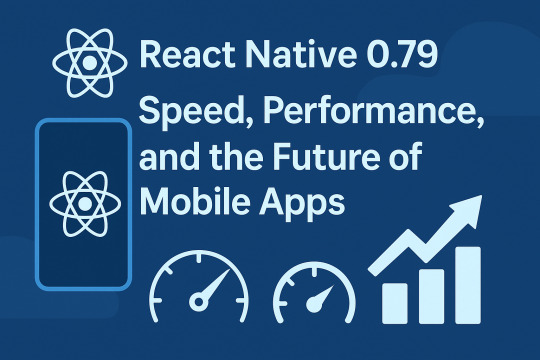
Whether you’re building cross-platform apps or future-proofing your mobile solutions, this latest release is a true game-changer. Discover how TurboModules, Hermes engine, and Concurrent Rendering are redefining mobile development. If you're serious about scaling your mobile apps in 2025 and beyond — don't miss this detailed deep dive!
🔗 Read the full article here: 👉 https://stacksgather.com/articles/135-react-native-079-speed-performance-and-the-future-of-mobile-apps
#ReactNative #MobileDevelopment #CrossPlatform #TechNews #stacksgather #awaitsol #awaitsol.com #stacksgather.com
0 notes
Text
Best Cross-Platform App Development Frameworks

In today’s fast-paced digital world, businesses need to reach users on multiple platforms without excessive development costs. Cross-platform app development has emerged as the perfect solution, allowing developers to write a single codebase and deploy it across iOS, Android, and even web applications.
But with so many frameworks available, how do you choose the right one?
In this guide, we’ll explore the best cross-platform app development frameworks of 2025, their benefits, key features, and how they compare in terms of performance, scalability, and cost-effectiveness. Whether you’re a startup looking for a quick MVP or an enterprise aiming for a seamless multi-platform experience, this guide will help you make an informed decision.
What is a Cross-Platform App Development Framework?
A Cross-Platform App Development Framework is a software tool that enables developers to create mobile applications that run on multiple operating systems (iOS, Android, Windows) using a single codebase. Unlike native development, which requires separate coding for different platforms, cross-platform frameworks streamline the process, reducing development time and costs.
What Are the Benefits of Cross-Platform App Development Frameworks?
1. Code Reusability: Write Once, Run Anywhere
One of the most significant advantages of cross-platform development is code reusability. Instead of writing separate codebases for iOS and Android, developers can create a single codebase that works across multiple platforms. This approach:
Reduces development time by eliminating redundant coding efforts.
Simplifies debugging and maintenance, as there is only one codebase to manage.
Ensures consistency in application logic and functionality across all platforms.
Boosts efficiency, allowing developers to focus on innovation rather than rewriting code.
2. Cost-Effective: Reduce Development and Maintenance Costs
Developing separate native apps for Android and iOS requires two development teams, doubling costs. With cross-platform frameworks:
Businesses save money by hiring a single development team instead of two.
Maintenance costs are lower since updates and bug fixes are applied universally to all platforms.
Faster development cycles lead to quicker product launches, reducing time-to-market expenses.
Startups and SMEs benefit from budget-friendly app development without compromising performance.
3. Faster Development: Quick Deployment Across Multiple Platforms
Time-to-market is crucial in today’s competitive landscape. Cross-platform frameworks enable rapid development by:
Using pre-built components and libraries, which speed up the development process.
Allowing simultaneous deployment on different platforms reduces the time required to launch an app.
Supporting features like Hot Reload (Flutter) and Live Reload (React Native), which enable instant updates and real-time testing.
Enhancing developer productivity, leading to shorter development cycles and faster iterations.
4. Uniform User Experience: Maintain UI/UX Consistency
Cross-platform development ensures a seamless and consistent user experience across all devices. This is crucial for brand recognition and customer satisfaction. Benefits include:
Consistent UI elements, ensuring a uniform look and feel across all platforms.
Frameworks like Flutter and React Native provide platform-specific UI components, making apps feel native.
Improved user engagement and retention due to a familiar and intuitive interface.
Eliminates the risk of disjointed user experiences caused by inconsistent design on different operating systems.
5. Wider Market Reach: Launch Apps on Different OS Simultaneously
Cross-platform development allows businesses to reach a larger audience by launching applications on multiple operating systems at once. This results in:
Increased customer base, as apps are available to both iOS and Android users simultaneously.
Higher revenue potential, as businesses don’t miss out on either market segment.
Scalability, enabling future expansion to platforms like Windows, macOS, and Web with minimal effort.
A competitive edge, as businesses can launch faster than those relying on traditional native app development.
What Are the Best Frameworks for Developing Cross-Platform Mobile Apps?
1. Flutter
Developer: Google
Language: Dart
Why Choose Flutter?
Flutter, developed by Google, is one of the most popular cross-platform app development frameworks. It is known for its fast development, high-performance rendering, and visually appealing UI components. Flutter allows developers to build natively compiled applications for mobile, web, and desktop using a single codebase.
Hot Reload: One of Flutter’s standout features is Hot Reload, which enables developers to see code changes instantly without restarting the application. This accelerates the development process and enhances productivity.
Rich UI Components: Flutter offers a comprehensive widget-based architecture, allowing developers to create visually rich and customizable UI components that provide a native-like experience.
High Performance: The framework uses Skia, a powerful 2D rendering engine, to deliver smooth animations and seamless performance.
Strong Community Support: Being backed by Google, Flutter has extensive documentation, active developer communities, and continuous updates that keep it evolving.
Use Cases:
Flutter is widely used for:
MVP (Minimum Viable Product) Development: Ideal for startups looking to validate their ideas quickly.
eCommerce Apps: Provides a smooth and responsive user experience for online shopping platforms.
On-Demand Service Apps: Used for apps like ride-hailing, food delivery, and home services due to its fast rendering and interactive UI.
Popular Apps Built with Flutter:
Google Ads — A mobile version of Google’s advertising platform.
BMW App — The automobile giant’s mobile application for seamless customer engagement.
Alibaba — A widely used eCommerce app leveraging Flutter for a dynamic user experience.
2. React Native
Developer: Meta (formerly Facebook)
Language: JavaScript
Why Choose React Native?
React Native is an open-source JavaScript framework developed by Meta (formerly Facebook). It is one of the most widely used cross-platform frameworks, known for its efficiency, reusability, and fast development cycle.
Reusable Components: Developers can write once and reuse components across both Android and iOS platforms, reducing development time and cost.
Live Reload: Similar to Flutter’s Hot Reload, React Native offers Live Reload, which enables developers to see the impact of their code changes instantly.
Strong Community Support: With Meta’s backing, React Native enjoys an active open-source community, providing extensive libraries, third-party plugins, and developer support.
Third-Party Plugin Support: The framework supports third-party modules, enhancing functionality and speeding up development.
Use Cases:
React Native is widely used for:
Social Media Apps: It powers apps like Facebook and Instagram due to its high performance and native-like UI.
Streaming Apps: Popular for building media and video streaming platforms like Netflix and YouTube.
FinTech Solutions: Provides security and seamless functionality for banking and financial applications.
Popular Apps Built with React Native:
Facebook — The company’s own app is built on React Native.
Instagram — A leading photo and video-sharing platform.
Airbnb — A global marketplace for travel and accommodation services.
3. Xamarin
Developer: Microsoft
Language: C#
Why Choose Xamarin?
Xamarin, developed by Microsoft, is a robust framework that allows developers to build native-like applications using C# and .NET. It is well-suited for enterprise applications that require seamless API integration and high performance.
Seamless API Integration: Xamarin provides direct access to native APIs, ensuring apps feel truly native while being built with a shared codebase.
Strong Microsoft Ecosystem: Developers can leverage Azure, Visual Studio, and .NET libraries to enhance functionality and performance.
Code Sharing: Up to 90% of the codebase can be shared across different platforms, significantly reducing development time.
Use Cases:
Xamarin is commonly used for:
Enterprise Applications: Many large organizations use Xamarin to create secure and scalable business applications.
Healthcare Apps: With a focus on performance and security, Xamarin is a preferred choice for healthcare and medical applications.
Financial Software: Due to its robust security features, Xamarin is used for banking and financial applications.
Popular Apps Built with Xamarin:
Microsoft Outlook — A widely used email and productivity application.
Alaska Airlines — A seamless flight booking and travel app.
The World Bank — A high-performance mobile solution for the financial sector.
4. Kotlin Multiplatform
Developer: JetBrains
Language: Kotlin
Why Choose Kotlin Multiplatform?
Kotlin Multiplatform, developed by JetBrains, is an emerging cross-platform framework that enables developers to use Kotlin’s native features while sharing code between Android, iOS, and web applications.
Native Performance: Unlike other frameworks that rely on JavaScript, Kotlin Multiplatform compiles native code, delivering high performance.
Flexible Architecture: Developers can write shared business logic while keeping platform-specific implementations for UI and other critical functions.
Officially Supported by Google: Since Google supports Kotlin for Android development, Kotlin Multiplatform is future-proof and integrates well with existing Android applications.
Use Cases:
Kotlin Multiplatform is best suited for:
Business Applications: Ideal for corporate and enterprise solutions that require multi-platform compatibility.
Data-Driven Apps: Used in applications that rely on analytics and big data.
Utility Apps: Well-suited for tools like task managers, note-taking apps, and scheduling apps.
Popular Apps Built with Kotlin Multiplatform:
Cash App — A widely used mobile payment service.
PlanGrid — A construction productivity tool for professionals.
5. Unity
Developer: Unity Technologies
Language: C#
Why Choose Unity?
Unity is a powerful cross-platform game development framework that allows developers to create immersive gaming experiences with high-quality graphics and real-time rendering.
Best for Game Development: Unity is the leading framework for 2D and 3D game development, offering advanced physics engines and rendering capabilities.
AR/VR Support: It integrates with ARKit (Apple) and ARCore (Google), making it the top choice for augmented and virtual reality applications.
Cross-Platform Compatibility: Unity supports mobile, PC, web, and even console gaming, providing extensive platform coverage.
Use Cases:
Unity is widely used for:
Gaming Apps: The go-to framework for both indie and AAA game developers.
AR/VR Applications: Used in training simulations, interactive marketing, and immersive experiences.
3D Simulations: Deployed in architecture, automotive, and industrial applications.
Popular Apps Built with Unity:
Pokémon GO — The globally popular AR-based game.
Angry Birds 2 — A sequel to the hit mobile game.
Call of Duty Mobile — A high-performance shooter game.
6. Ionic
Developer: Ionic Framework Team
Language: HTML, CSS, JavaScript (with Angular, React, or Vue)
Why Choose Ionic?
Ionic is a popular open-source framework for building cross-platform apps with a web-first approach. It leverages standard web technologies while providing a native-like experience.
UI Components Library: Comes with pre-built UI components that offer a native feel on both iOS and Android.
Supports Multiple JavaScript Frameworks: Works seamlessly with Angular, React, and Vue.
Capacitor for Native Access: Provides direct access to native APIs, making hybrid apps more powerful.
Use Cases:
Ionic is widely used for:
Progressive Web Apps (PWAs): Ideal for web apps that function like mobile applications.
Business and Enterprise Apps: Used for internal tools and customer-facing applications.
E-Learning Applications: Popular in education technology due to its modularity.
Popular Apps Built with Ionic:
MarketWatch — A financial news and stock market tracking app.
Sworkit — A home workout and fitness app.
Sanvello — A mental health and wellness application.
How to Choose the Right Cross-Platform App Development Framework?
Selecting the right framework depends on various factors. Consider the following before making your decision:
1. Project Requirements
Different frameworks cater to different types of applications. If your app requires complex UI, high performance, or custom native integrations, opt for Flutter or Kotlin Multiplatform. For business apps requiring a stable ecosystem, Xamarin is a solid choice.
2. Development Language
Your team’s expertise in a particular programming language influences framework selection:
If you prefer Dart, go with Flutter.
For JavaScript developers, React Native is the best option.
C# developers should choose Xamarin.
If your team is experienced in Kotlin, Kotlin Multiplatform is ideal.
3. Performance Needs
For applications requiring smooth animations, complex UI interactions, and high-performance graphics, Flutter or Kotlin Multiplatform is the best choice. Unity is preferred for gaming and AR/VR apps due to its advanced rendering engine.
4. Community & Support
A strong developer community ensures better documentation, frequent updates, and troubleshooting support. React Native and Flutter have the largest communities, making them excellent choices for long-term scalability.
5. Cost Efficiency
Choosing the right framework also impacts development and maintenance costs. React Native and Flutter are widely used, meaning a larger talent pool and lower hiring costs. Xamarin, being a Microsoft product, is more cost-effective for enterprises already using the Microsoft ecosystem.
Why Choose CodeRower for Cross-Platform App Development?
At CodeRower, we specialize in delivering top-tier cross-platform mobile applications tailored to your business needs. Our expert developers leverage cutting-edge technologies to create seamless, high-performance apps that run smoothly across multiple platforms. Here’s why businesses trust us:
Expert Developers: Our team is proficient in leading cross-platform frameworks, including Flutter, React Native, and Xamarin.
Faster Time-to-Market: We use pre-built components, efficient coding practices, and agile methodologies to accelerate app development.
Cost-Effective Solutions: With a single codebase, we reduce development and maintenance costs without compromising quality.
Seamless UI/UX Design: We ensure consistent branding, intuitive interfaces, and engaging user experiences across all devices.
Scalability & Performance: Our applications are built to handle growing user bases with robust architecture and optimized performance.
Whether you need an MVP for your startup or an enterprise-grade solution, CodeRower provides end-to-end cross-platform app development services that drive business success.
Conclusion
Cross-platform app development has revolutionized the way businesses create mobile applications. Whether you prioritize UI, performance, or cost-effectiveness, choosing the right framework can significantly impact your app’s success.
CodeRower is a leading software development company specializing in cross-platform app development that helps businesses build high-performance applications for iOS, Android, and web using a single codebase. Our expert developers leverage Flutter, React Native, Xamarin, and Kotlin Multiplatform to create scalable, cost-effective, and feature-rich applications tailored to your business needs.
With a proven track record in delivering enterprise-grade applications, MVPs, and industry-specific solutions, CodeRower ensures seamless user experiences, optimized performance, and faster time-to-market.
If you’re looking for expert cross-platform app development services, CodeRower is here to help! Contact us today and bring your mobile app ideas to life.
Frequently Asked Questions
1. What is the difference between native and cross-platform app development?
Native app development involves building separate applications for each platform (iOS, Android) using platform-specific languages like Swift (iOS) and Kotlin (Android). Cross-platform app development, on the other hand, allows developers to write a single codebase that runs on multiple platforms, reducing development time and costs.
2. How does CodeRower help in cross-platform app development?
CodeRower specializes in developing high-quality, scalable cross-platform applications tailored to business needs. Our team of experts leverages cutting-edge technologies like Flutter, React Native, and Xamarin to deliver seamless, cost-effective solutions.
3. What are the key benefits of cross-platform app development?
Cross-platform app development offers several advantages, including:
Faster Development — A single codebase reduces development time.
Cost Efficiency — Saves resources compared to building separate native apps.
Wider Market Reach — Apps run on both iOS and Android simultaneously.
Easier Maintenance — Updates and bug fixes apply across platforms.
Consistent UI/UX — Ensures a uniform experience across devices.
4. What are some of the best cross-platform development frameworks?
Popular frameworks for cross-platform development include:
Flutter — Developed by Google, ideal for high-performance, visually rich apps.
React Native — Backed by Meta (Facebook), suitable for dynamic, fast apps.
Xamarin — A Microsoft-backed framework using C# and .NET.
Kotlin Multiplatform — Allows code sharing across iOS and Android.
5. How does CodeRower ensure a high-quality cross-platform app?
At CodeRower, we follow industry best practices to ensure top-notch app quality:
Agile Development — Rapid iterations for faster delivery.
Rigorous Testing — Performance, security, and usability testing.
Optimized Codebase — High performance with minimal latency.
User-Centric Design — Smooth navigation and engaging UI/UX.
Post-Launch Support — Regular updates and maintenance.
6. Why should I choose CodeRower for my cross-platform app development?
At CodeRower, we provide:
Expertise in multiple frameworks — Flutter, React Native, Xamarin, and Kotlin Multiplatform.
Custom-tailored solutions — Designed to fit your business requirements.
Scalability and performance — Apps optimized for speed, security, and efficiency.
Cost-effective development — Faster time-to-market without compromising quality.
Dedicated support — End-to-end maintenance and updates to keep your app running smoothly.
Ready to build your cross-platform app? 🚀 Contact CodeRower today to discuss your project requirements and take your business to the next level!
#development tools#framework#software development framework#agile framework#cross platform#flutter developers#flutter development#reactnative#reactjs developers#software development#app development#web app development#android app development#web development#ios app development#custom app development#game development#custom software development
0 notes
Text
Create Native iOS & Android Apps Using JavaScript
Learn how to build native mobile apps for iOS and Android using JavaScript with this hands-on course on EasyShiksha. Master frameworks like React Native to develop high-performance, cross-platform applications. Start coding your first mobile app today!
0 notes
Text
Picking the Ideal Tech Stack for Your Mobile App
As an entrepreneur diving into the world of mobile apps, selecting the right technology stack can feel overwhelming. But trust me, it's a crucial decision that can make or break your app's success. Let's break down how to choose the perfect tech stack tailored to your needs, making your journey a little smoother and more informed.
Understanding the Importance of a Technology Stack
When I first started exploring mobile app development, I was bombarded with technical jargon. The tech stack is essentially the set of technologies used to build your app, including programming languages, frameworks, libraries, and tools. Choosing the right stack affects not only your app’s performance but also its scalability, maintainability, and even its future development costs.
Key Factors to Consider
1. App Requirements and Features
Think about what your app needs to do. Is it a gaming app requiring high performance and graphics? Or is it a simple utility app with minimal features? Knowing your app’s core functionalities helps in narrowing down the tech stack options.
2. Target Audience
Who will be using your app? Different demographics may prefer different platforms (iOS vs. Android). For instance, if you’re targeting users in the USA, a balanced focus on both platforms is often necessary.
3. Developer Expertise
Consider the expertise of your development team. If you’re partnering with a mobile app development company in USA, ensure they have experience with the technologies you’re considering. Their expertise can save you a lot of time and money.
Popular Tech Stacks for Mobile App Development
Let’s dive into some popular tech stacks and their pros and cons.
Native Development
iOS (Swift)
Pros: High performance, excellent user experience, access to full device features.
Cons: Only works on iOS, can be costly and time-consuming.
Android (Kotlin)
Pros: Native performance, wide range of libraries, full access to device features.
Cons: Only works on Android, development can be complex.
Cross-Platform Development
React Native Development services
Pros: Code reuse between iOS and Android, fast development cycle, backed by Facebook.
Cons: Performance can be an issue for complex apps, reliance on third-party libraries.
Flutter Development services
Pros: Single codebase for both platforms, excellent performance, rich widgets.
Cons: Still relatively new, smaller community compared to React Native.
My Personal Recommendations
When I consulted with a top mobile app development company in the USA, they emphasized the importance of aligning the tech stack with business goals. Here’s a simplified approach I found helpful:
If you’re unsure, start with a minimal viable product (MVP) using a versatile stack like React Native. This approach allows you to test the waters without committing too heavily.
Think long-term. Choose a stack that supports scaling and adding new features as your user base grows. Native development might be more beneficial here if you anticipate high-performance needs.
Ensure the technologies you choose have a robust community and support system. This makes finding solutions to problems much easier.
Conclusion
Selecting the right technology stack is pivotal for your mobile app’s success. By understanding your app’s requirements, considering your target audience, leveraging your development team’s expertise, and staying updated with current trends, you can make an informed decision. Remember, the right tech stack not only brings your app idea to life but also ensures it thrives in the competitive market.
If you’re ready to take the next step, don’t hesitate to reach out to a reliable mobile app development services in USA they can provide you with tailored solutions, ensuring your app stands out in the crowded market.
#hire developers#hire app developer#mobile app development#hire mobile app developers#ios app development#android app development#flutter app development#reactnative#technology#hire flutter developer
0 notes
Text
Are you seeking a job and want to improve your IT skills to increase your chances of getting hired?
IT skills development courses can significantly enhance employability in today's competitive job market. Here are some essential courses to consider:
1. Programming Languages: Learn popular programming languages like Python, Java, JavaScript, or C++. These languages are widely used across industries and are in high demand by employers.
2. Web Development: Acquire HTML, CSS, and JavaScript skills to create interactive and responsive websites. Understanding web development fundamentals opens up web design, front-end development, and UX/UI opportunities.
3. Database Management: Gain proficiency in database management systems like SQL and NoSQL. Database skills are crucial for roles in data analysis, data science, and backend development.
4. IT Project Management: Effective project management skills are essential for overseeing IT projects from start to finish. Courses covering project management methodologies such as Agile or Scrum, along with tools like Jira or Microsoft Project, can help you become a competent IT project manager.
Enrolling in IT skill development courses can help you improve your knowledge and proficiency in areas where employers place high value. Remember to showcase your newly acquired skills on your resume and LinkedIn profile to attract potential employers.
For comprehensive IT training courses, consider AnA Academy. With a strong reputation for excellence and an industry-relevant curriculum, AnA Academy provides the perfect environment for refining your IT skills and advancing your career prospects.
#computer academy#Best Computer Institute#IT Training Institute#Computer Centre#Best Software training institute#Computer Training Institute#it professional course#it training course#mobile app developer course#mobile app development course#web developer course#web development course#android course#java course#kotlin course#ios course#swift course#flutter course#reactnative course#php course#laravel course#mern stack developer course
1 note
·
View note
Text
Avoiding Common Mistakes in Flutter Development

#flutter#android#programming#coding#flutterdeveloper#developer#javascript#flutterdev#programmer#ios#java#androiddeveloper#appdeveloper#kotlin#appdevelopment#python#reactnative#dart#daysofcode#code#flutterapp#uidesign#webdevelopment#ui#coder#softwaredeveloper#css#html#iosdeveloper#mobileappdevelopment
0 notes
Text
Best React Native Development Services - Shiv Technolabs

Experience seamless integration and migration of your mobile app with our top-tier React native development services. Our expert team ensures a smooth transition, maintaining functionality and enhancing performance. We specialize in leveraging React Native's power to optimize your app's user experience across platforms. From seamless integration to meticulous migration, trust us to elevate your app's performance and reach. Unlock the potential of React Native with our unparalleled integration and migration services.
#reactnativeappdevelopment#reactnative#app#mobileappdevelopment#android#ios#javascript#nativeapps#business#shivtechnolabs#knightcoders
0 notes
Text
React Native 0.76 new architecture guide
🚀 Learn how to unlock the full potential of React Native 0.76 with its latest architectural updates!
From migration paths to performance optimizations, this guide is a must-read for developers.
📖 Read here: https://stacksgather.com/articles/react-native-new-architecture-guide
#ReactNative #MobileDev #CodingTips #CrossPlatformApps #stacksgather #awaitsol #awaitsol.com #stacksgather.com
0 notes
Text
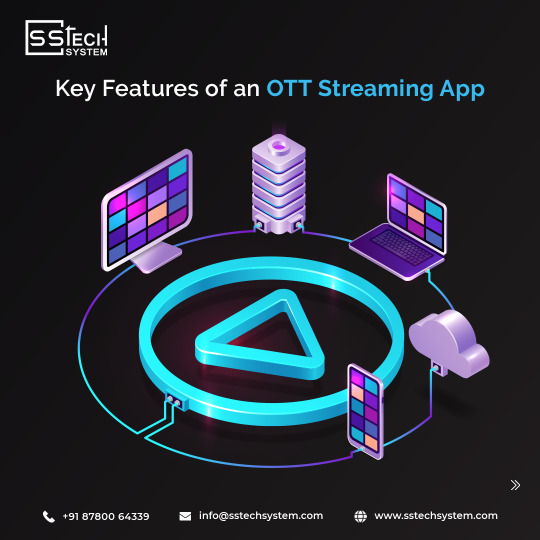
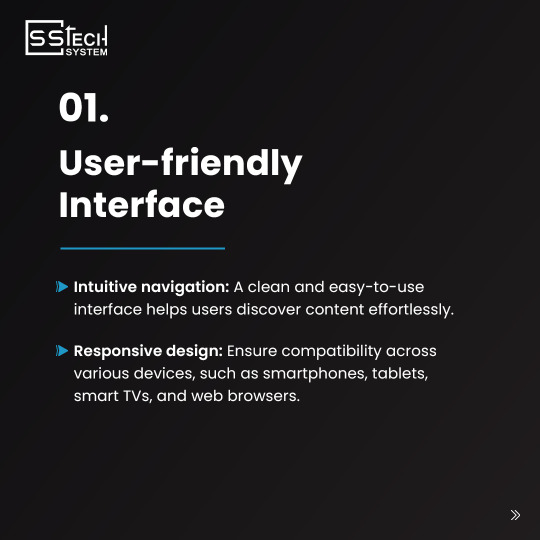
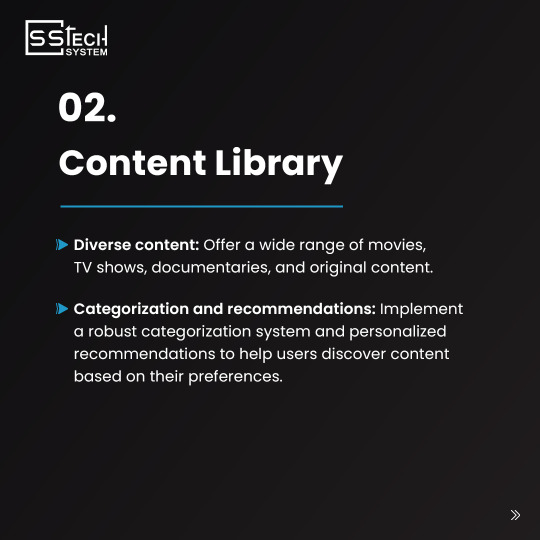
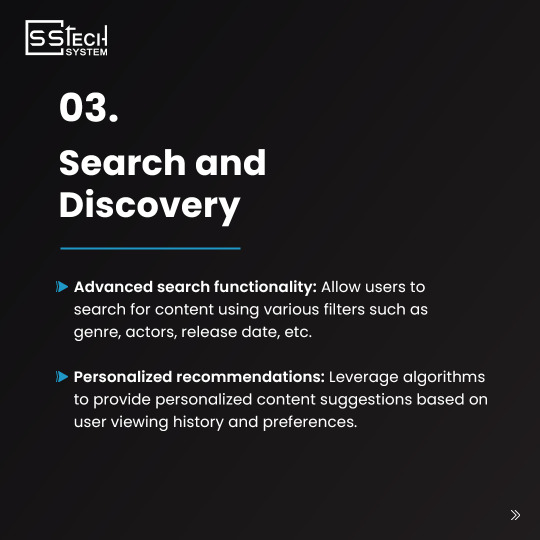
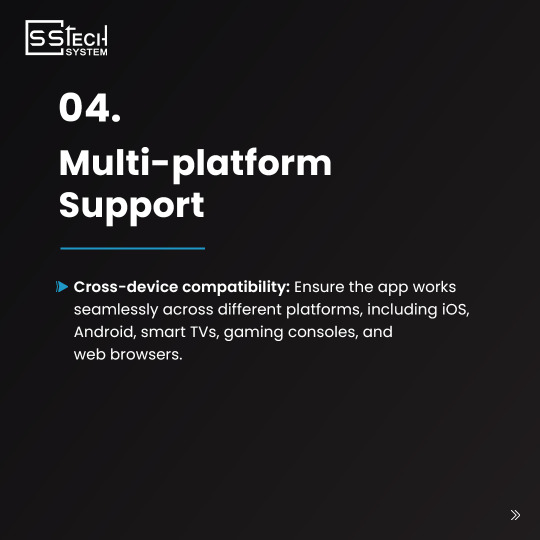
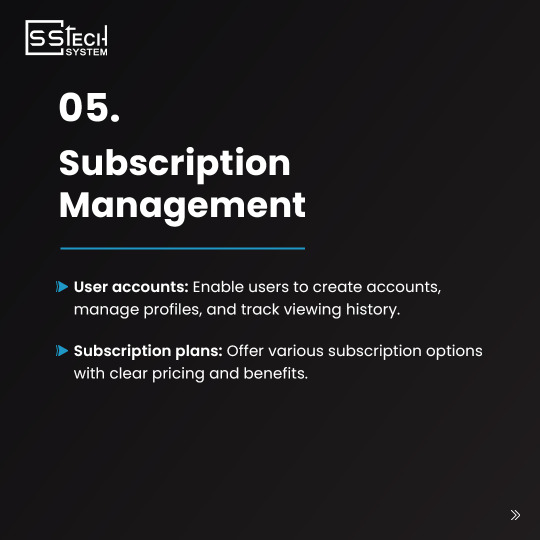
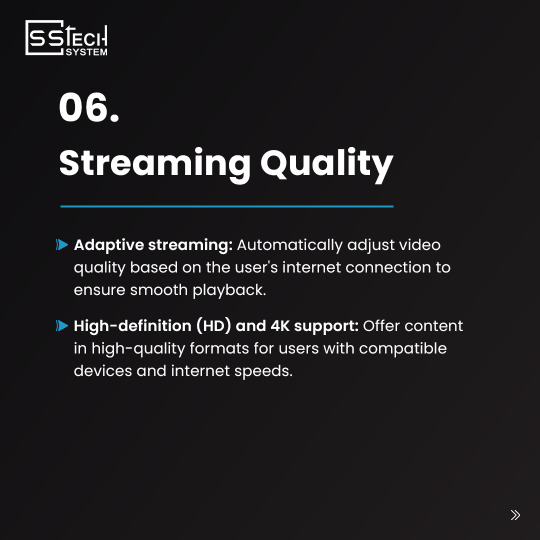
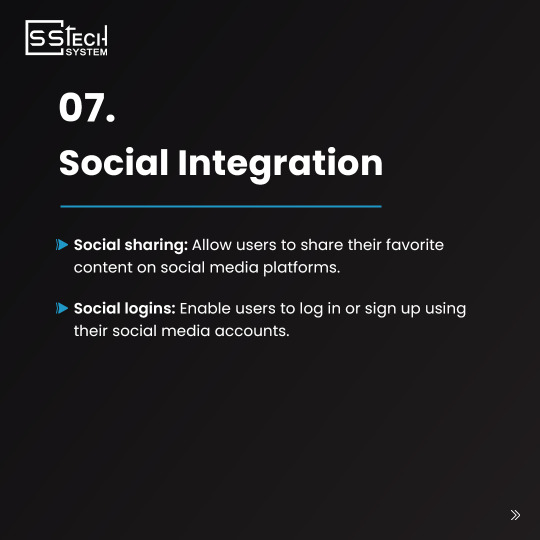
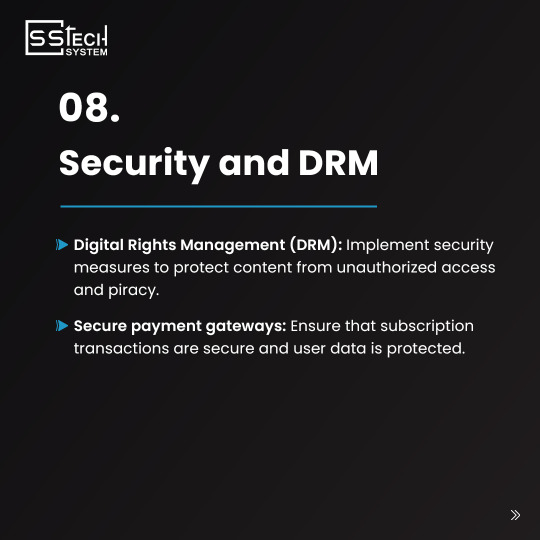

Build your own OTT streaming app with our comprehensive development platform. Start your free trial today! 🍿🎬
𝗙𝗼𝗿 𝗠𝗼𝗿𝗲 𝗜𝗻𝗳𝗼𝗿𝗺𝗮𝘁𝗶𝗼𝗻: SSTech System
#NewApp#OTTStreaming#mobileapps#mobiledevelopment#sstechsystem#OnTheApp#OTTCompany#OTTAppDevelopment#OTT#android#ios#apps#appsdevelopment#Australia#Southafrica#AndroidAppDevelopment#iOSAppDevelopment#ReactNative#Flutter#Xamarin#NativeDevelopment#CrossPlatformDevelopment#BuildYourOwnApp#GetCreative#ExpressYourself
1 note
·
View note
Text
iTechnolabs is a software development firm that specializes in web and mobile applications for a variety of industries. We are the #1 react native development company in the United States and Canada. To provide the best services to our clients, we have an experienced team of software developers, website designers and developers, and an Internet marketing team.
#app developing company#ios#smartphone#technology#software#reactnative#programmer#javascript#developer#reactjs#user experience#coding
1 note
·
View note
Text
Virtual Production: Revolutionizing the Entertainment Industry
In recent years, virtual production has emerged as a groundbreaking technology, revolutionizing the entertainment industry in ways never seen before. From movies and television shows to video games and live events, virtual production has become a game-changer, offering unprecedented creative possibilities and cost efficiencies. In this article, we delve deep into the world of virtual production and explore how it is transforming the way we experience entertainment.
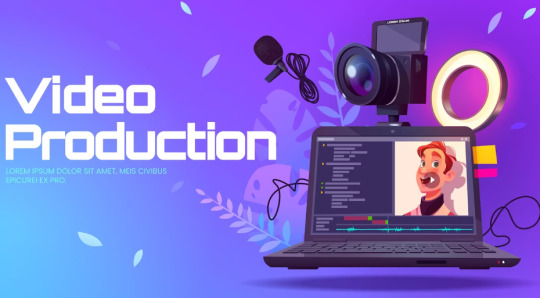
What is Virtual Production?
Virtual production is a cutting-edge technique that merges live-action footage with computer-generated imagery (CGI) in real-time. By utilizing advanced technologies such as motion capture, augmented reality, and virtual reality, virtual production bridges the gap between the physical and digital realms, enabling filmmakers and content creators to visualize and capture complex scenes in a highly efficient manner.
The Benefits of Virtual Production
Enhanced Creativity: Virtual production opens up a world of limitless creative possibilities. Filmmakers can bring to life fantastical worlds, unimaginable creatures, and breathtaking visual effects with unparalleled realism and detail. The ability to see the final result in real-time empowers directors and cinematographers to make on-the-fly creative decisions, fostering a collaborative and dynamic filmmaking process.
Cost Efficiency: Traditional production methods often involve costly set constructions, location scouting, and extensive post-production work. Virtual production streamlines these processes, significantly reducing production costs and saving both time and resources. With virtual sets and environments, filmmakers can create stunning visuals without the need for elaborate physical sets, thereby minimizing expenses associated with logistics and construction.
Time Saving: Virtual production accelerates the production timeline, enabling filmmakers to complete projects more efficiently. By eliminating the need for extensive post-production work, such as adding CGI effects in the editing phase, virtual production allows for real-time integration of visual effects during filming. This eliminates the lengthy waiting periods and accelerates the overall production process.
Realistic Performances: One of the most remarkable aspects of virtual production is its ability to capture realistic performances. With advanced motion capture technology, actors' movements and expressions can be seamlessly translated onto digital characters or creatures. This level of realism enhances the audience's immersion and emotional connection, creating a truly captivating viewing experience.
Applications of Virtual Production
Film and Television
Virtual production has become a game-changer in the film and television industry. It has been widely adopted for creating visually stunning films, such as the groundbreaking "Avatar" and "The Jungle Book." With virtual production, filmmakers can transport audiences to new worlds, breathe life into imaginary creatures, and tell captivating stories with unprecedented visual fidelity.
Video Games
Virtual production has also made significant strides in the realm of video games. The ability to capture real-time performances and integrate them into virtual environments has elevated the gaming experience to new heights. Games like "The Last of Us Part II" and "Cyberpunk 2077" have utilized virtual production techniques to create immersive and visually stunning worlds that blur the line between reality and fiction.
Live Events and Broadcast
Virtual production has even found its way into live events and broadcast productions. With the use of augmented reality, virtual sets, and live compositing, events like award shows, concerts, and sports broadcasts have been transformed into visually captivating spectacles. Virtual production allows for dynamic real-time visual effects and virtual elements that enhance the overall viewer experience.
The Future of Virtual Production
As technology continues to advance, virtual production is poised to become an integral part of the entertainment industry. The seamless integration of physical and digital elements, combined with real-time visualization and creative flexibility, paves the way for a new era of storytelling and audience engagement. We can expect virtual production to evolve further, pushing the boundaries of what is possible and continuing to reshape the way we consume and interact with entertainment content.
In conclusion, virtual production has emerged as a groundbreaking technology, revolutionizing the entertainment industry across film, television, video games, and live events. With its ability to enhance creativity, reduce costs, save time, and deliver realistic performances, virtual production is transforming the way we experience and engage with entertainment. As the technology advances and adoption increases, the future looks incredibly promising for virtual production, paving the way for unparalleled storytelling and immersive experiences.
#Backend#Fronted#Database#Qualitytesting#UnrealEngine#VirtualProduction#ArchitecturalVisualizationServices#Selenium#postman#node JS#Jira#AWS#google cloud#azure#Docker#Jenkins#IOS#android#Flutter#ReactNative#Xamarin#MySQL#MongoDB#PostgreSQL#Oracle#UI/UXDesign#3DModeling#InteriorVisualization#ExteriorVisualization#Animation
1 note
·
View note
Text

In today’s digital world, a custom mobile app is your gateway to reaching millions of users, boosting engagement, and growing your business faster than ever. At Depex Technologies, we specialize in crafting innovative, scalable, and user-friendly mobile applications tailored to your unique business needs.
Whether you’re a startup looking to launch your first app or an established company aiming to enhance your mobile presence, our expert team covers it all — from iOS and Android development to cross-platform solutions.
Why Choose Depex Technologies for Your App Development?
Expert Developers: Skilled in the latest technologies like React Native, Flutter, Swift, Kotlin, and more.
Custom Solutions: We build apps that fit your business goals perfectly, with seamless UI/UX.
End-to-End Services: From concept and design to development, testing, and post-launch support.
Agile Approach: Quick turnaround times with regular updates to keep you in the loop.
Affordable Pricing: Get high-quality apps without breaking your budget.
Unlock new revenue streams, automate business processes, and create unforgettable user experiences with a mobile app built by Depex Technologies.
Ready to bring your app idea to life? Contact Depex Technologies today for a free consultation
#AppDevelopment #MobileApp #DepexTechnologies #iOSDevelopment #AndroidDevelopment #ReactNative #Flutter #CustomApps #TechInnovation #DigitalTransformation #StartupTech #BusinessGrowth #SoftwareDevelopment #AppDesign #TechSolutions
0 notes
Text
🚀 Mobile App Development: Turning Ideas into Powerful Digital Solutions
🚀 Mobile App Development: Turning Ideas into Powerful Digital Solutions
In today’s fast-paced digital world, mobile apps have become essential tools for businesses and entrepreneurs to connect, engage, and grow. Whether you're a startup with a breakthrough idea or an established enterprise aiming to scale, mobile app development is your gateway to delivering seamless, on-the-go experiences to users.
📱 Why Mobile App Development Matters
With over 6 billion smartphone users worldwide, mobile apps are not just a trend—they're a necessity. From eCommerce and education to health tech and logistics, businesses across sectors are leveraging custom mobile apps to:
Enhance user engagement
Streamline operations
Drive sales and customer loyalty
Provide real-time access to services
💡 From Idea to App: The Development Journey
Ideation & Strategy Every successful app starts with a clear vision. We help you refine your idea, research the market, and define a roadmap aligned with your goals.
UI/UX Design A sleek, intuitive interface is key. Our design team crafts visually appealing and user-friendly experiences that keep users coming back.
Development & Integration We build robust, scalable apps using the latest tech stacks—whether it's native iOS/Android, cross-platform frameworks like Flutter or React Native, or backend APIs for data handling.
Testing & Quality Assurance Every app undergoes rigorous testing for performance, security, and usability to ensure a flawless launch.
Deployment & Support Post-launch, we help you roll out your app on the App Store and Google Play and provide ongoing maintenance and upgrades.
🔧 Technologies We Use
Languages: Swift, Kotlin, Dart, JavaScript
Frameworks: React Native, Flutter, Xamarin
Backend: Node.js, Firebase, Python, Laravel
Databases: MySQL, MongoDB, PostgreSQL
🌐 Real-World Impact
Whether it’s a delivery app, fintech platform, education tool, or on-demand service, mobile apps are reshaping how we live and work. Companies that invest in high-quality mobile experiences enjoy better customer retention, brand loyalty, and competitive advantage.
🤝 Ready to Build Your App?
At [Your Company Name], we don’t just build apps—we build digital experiences that drive growth. Let’s turn your vision into a fully functional, high-performance app that delivers results.
📩 Get in Touch: Looking to build a mobile app for your business? Contact us today to schedule a free consultation.
#MobileAppDevelopment #AppDesign #SoftwareDevelopment #DigitalSolutions #ReactNative #Flutter #NerasoftApps
0 notes
Text

📱 Transforming Ideas into Seamless Mobile Experiences! As a professional Mobile App Developer, I specialize in building high-performance, user-friendly, and scalable apps for both Android and iOS platforms. 💡 Whether you’re a startup or an established business, I help turn your vision into a powerful mobile solution. ✅ Custom App Development ✅ UI/UX Design Integration ✅ API & Backend Integration ✅ Cross-Platform & Native Apps ✅ App Store Deployment & Maintenance
From concept to launch – I handle it all with clean code, clear communication, and cutting-edge tools. Let's build something amazing together that your users will love and your business will benefit from.
🚀 Have an app idea? Let’s bring it to life!
#MobileAppDeveloper #AppDevelopment #AndroidDeveloper #iOSDeveloper #TechSolutions #MobileApps #FlutterDev #ReactNative #AppDesign #UIUXDesign #CodeLife #StartupTech #AppDevServices #DeveloperForHire #BuildWithCode #AppExperts
0 notes
Text
React native app development company
Looking to build high-performing cross-platform apps? Partner with a React Native app development company to bring your ideas to life faster and smarter. From iOS to Android, get seamless performance, native-like experience, and quicker time to market. Let experts turn your mobile vision into reality!
Read more : https://www.sphinx-solution.com/react-native-app-development/
ReactNative #AppDevelopment
0 notes